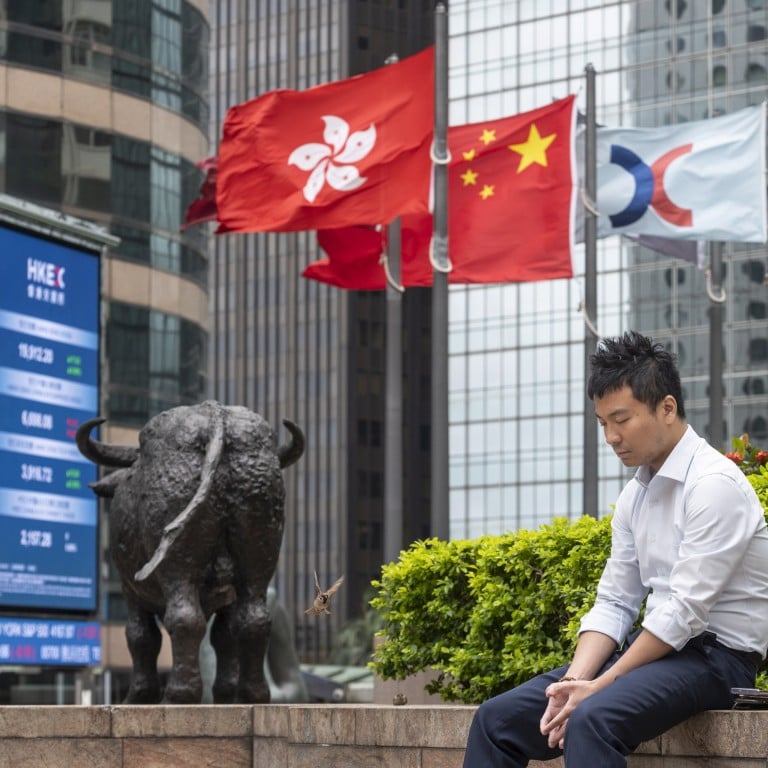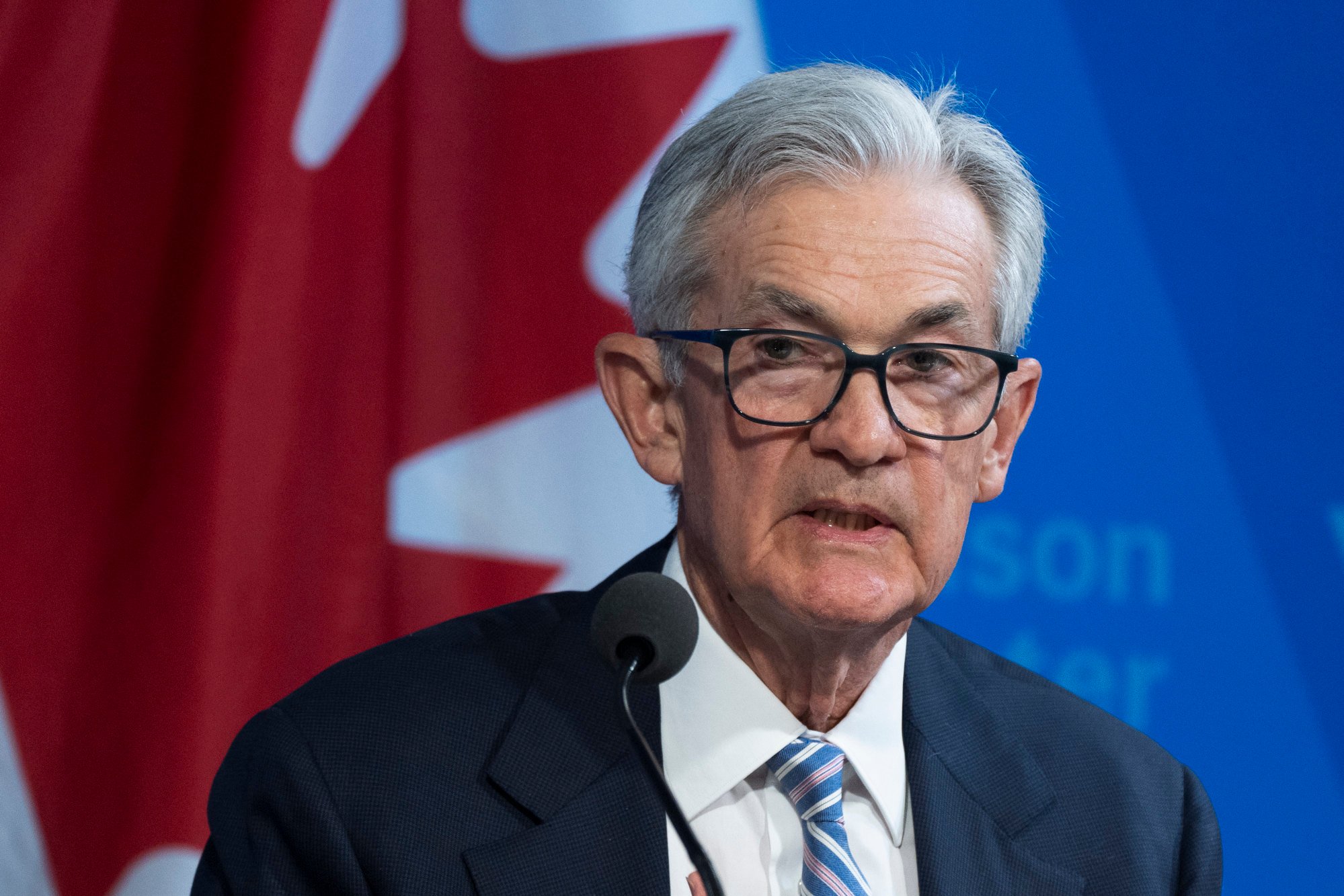
Hong Kong stocks gyrate as Fed chair Powell strikes hawkish tone on inflation
- Blue chips Li Auto and AIA gain on technical indicators, while Alibaba, NetEase and Galaxy Entertainment end lower
- With Fed chairman Jerome Powell saying it could take ‘longer than expected’ to get inflation back on target, traders pare back bets on a rate cut in June
The Hang Seng Index added less than 3 points, closing practically flat at 16,251.84 on Wednesday, after oscillating between a 0.4 per cent gain and 0.6 per cent loss during the day. The Tech Index added 0.1 per cent, while the Shanghai Composite Index jumped 2.1 per cent.
Electric-car maker Li Auto rallied 4 per cent to HK$114.90, drug maker Wuxi Biologics added 2.1 per cent to HK$13.32 and insurer AIA jumped 1.8 per cent to HK$46.85, after their 14-day relative strength indicator readings approached 30, a closely watched technical sign that these stocks are in an oversold zone.
Limiting gains, e-commerce giant Alibaba Group Holding fell 0.7 per cent to HK$68, Meituan lost 1.2 per cent to HK$97.55, and gaming firm NetEase slipped 0.8 per cent to HK$141.10. Macau casino operator Galaxy Entertainment Group tumbled 7.1 per cent to HK$34.20 and peer Sands China lost 3.3 per cent to HK$19.04.

Sentiment took a hit after Fed chair Jerome Powell struck a cautious note on inflation, saying it could take “longer than expected” to get inflation back on target. Traders have pared back their expectations of a rate cut at the Fed’s June meeting, with only a 14.9 per cent chance, compared with 56.1 per cent a week ago, according to CME’s FedWatch tool.
A four-day sell-off in Hong Kong had pushed the gauge to the lowest level since March 7, as China’s shaky economic data and rising geopolitical tensions in the Middle East sapped risk appetite. Stocks are now trading at 8.07 times forward earnings on average, the cheapest among global peers, according to Bloomberg data.
“Hong Kong’s market could continue to fluctuate in the near term,” Dai Qing, an analyst at Changjiang Securities, said in a note on Wednesday.
Million-dollar analyst jobs at risk in China’s research pullback
The profit outlook of Hong Kong companies is seen lacking upwards potential until mainland China’s property sales and consumption improve appreciably, while expectations for a looser US rate environment seem hard to materialise in the short term, he added.
Some 70 per cent of Asian money managers think a structural derating is under way for China’s equity market, according to a Bank of America survey of 145 participants with US$319 billion under management. About 40 per cent of investors said they will stick to a wait-and-see approach and will only add exposure when they see clearer signs of easing from Beijing.
Other major Asian markets were mixed. Japan’s Nikkei 225 slipped 1.3 per cent and South Korea’s Kospi lost 1 per cent, while Australia’s S&P/ASX 200 declined 0.1 per cent.

